Introduction of coffee bean producing areas in Kenya the flavor and taste characteristics of Kenyan coffee in Africa are recommended.
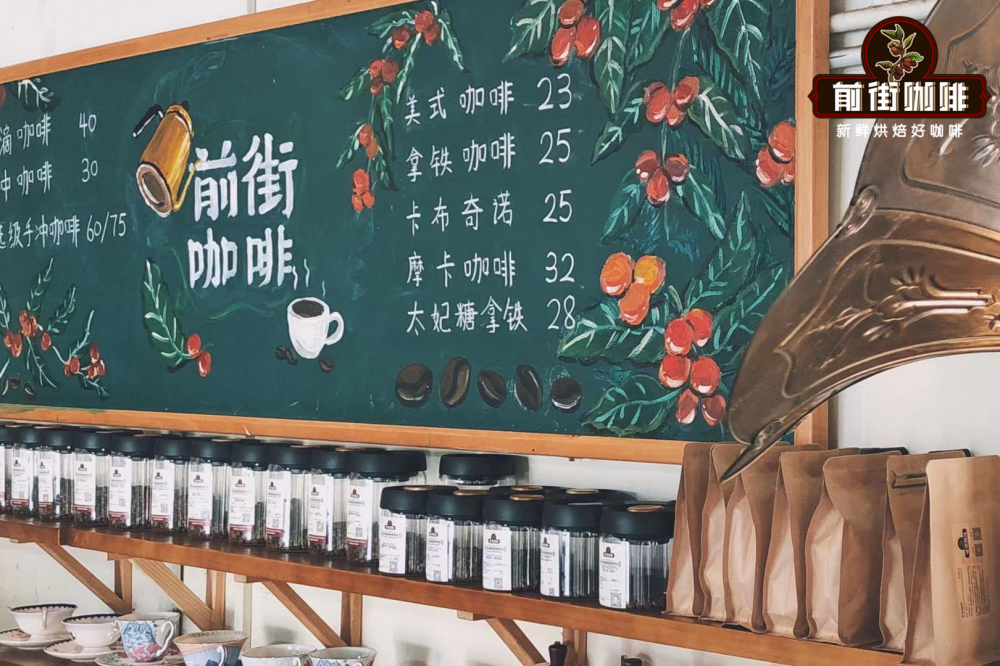
If you want to find the same kind of coffee beans in the bean list of any boutique coffee shop, there must be Kenyan coffee beans. At the Qianjie Coffee boutique, there is also an Asaria coffee bean from Kenya, which has a Kenyan flavor of bright acidity, small tomato and berry. Kenyan coffee beans with full and exquisite flavor to establish the extraordinary status of boutique tycoons, not only ordinary consumers are not unfamiliar, in the competition, there is no lack of high-quality coffee with a test score of more than 90 points. But in the coffee circle, have you ever heard of the dramatic stories of Kenyan coffee farms? The answer is no!
Producers and importers join hands to sell the production background and manor stories to consumers. The details from seeds to coffee cups are linked in the context that highlights the producing area. The higher the unit price of beans, the more they need stories to set off. Consumers love to hear it. Suppliers certainly enjoy it, but Kenyan coffee estates are not popular. If you think about it, Kenya, a big bean-producing country, can be regarded as "the most familiar stranger!" It's not too much.
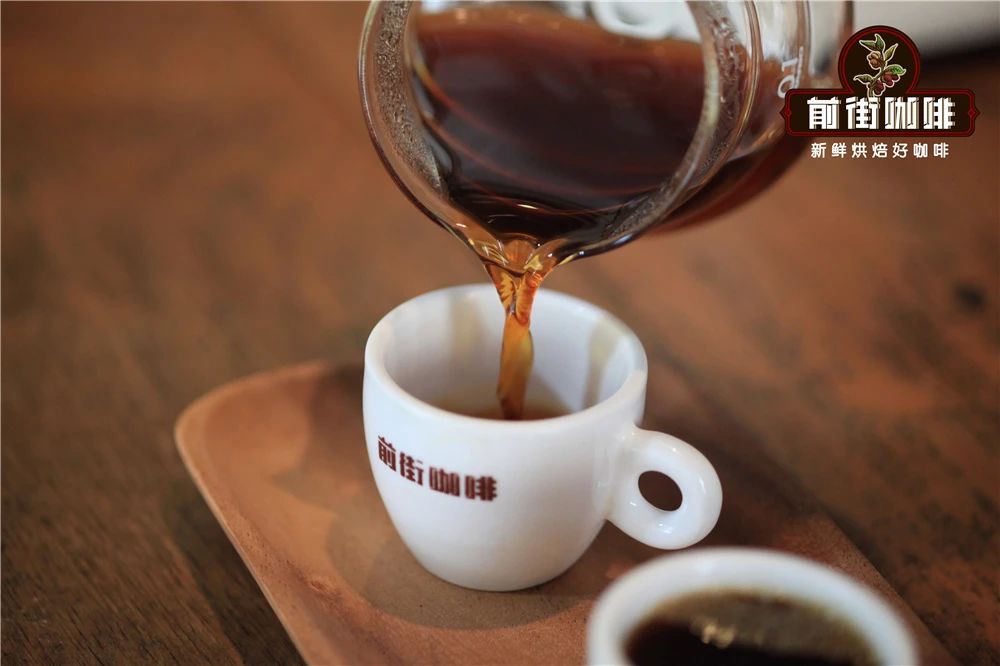
Kenyan coffee is mostly grown at an altitude of 1500m, 2100m, and is harvested twice a year. To ensure that only ripe berries are picked, people must tour the forest about seven times. Kenyan coffee is grown by small farmers. After they harvest the coffee, they first send the fresh coffee beans to the cooperative cleaning station. The washing station sends the dried coffee to the cooperative in the form of "parchment coffee beans" (that is, coffee beans covered with endocarp) to the cooperative ("parchment coffee beans" is the last state of coffee beans before peeling). All the coffee is collected together, and the growers charge the average price according to their actual quality. This trading method generally works well and is fair to both growers and consumers.
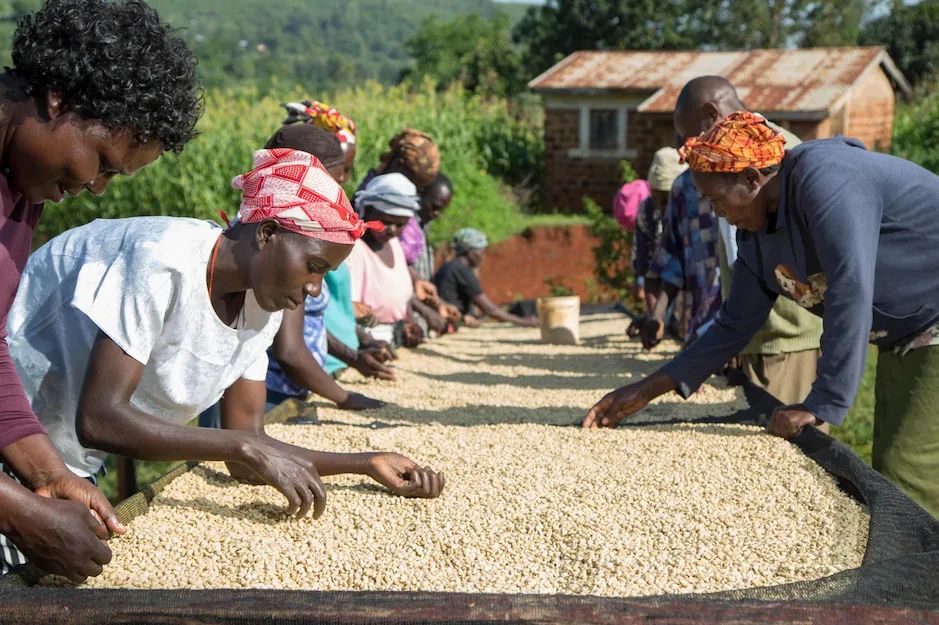
The producing areas of Kenya
NYERI (Nieli)
Nieli, located in central Kenya, is home to the extinct volcano Mount Kenya. The red soil in this area breeds the best coffee in Kenya. Agriculture is extremely important here; coffee is the most important crop. Common cooperatives made up of small farmers are more common than large manors. There are two harvests in this area, but coffee from the growing season is usually of high quality.
Altitude: 1200-2300 m
Harvest period: October to December (main production season), June to August (by-product area)
Varieties: SL-28, SL-34, Ruriu11, Batian.
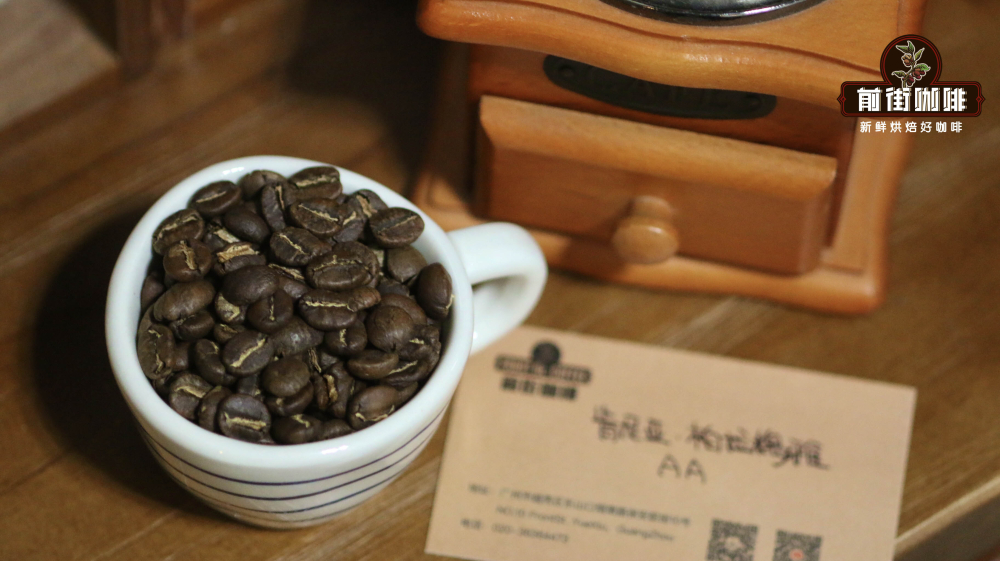
MURANG'A (Mulanga)
There are about 100000 coffee farmers in this area. This inland producing area was the place of settlement chosen by the first missionaries because Portugal banned them from living in coastal areas. This is also another German producing area that benefits from volcanic soil, with more small coffee farmers than manors.
Altitude: 1350 to 1950 m
Harvest period: October to December (main production season), June to August (by-product season)
Varieties: SL-28, SL-34, Ruiru11, Batian
KIRINYAGA (Kirinaga)
The Nyeri producing area lies to the east, and this area also benefits from volcanic soil. Coffee is usually produced by small farmers, and wet treatment plants also produce a lot of very high quality coffee, which is well worth a try.
Altitude: 1300 to 1900 m
Harvest period: October to December (main production season), June to August (by-product season)
Varieties: SL-28, SL-34, Ruiru11, Batian.
EMBU (Enbu)
The name of the area near Mount Kenya comes from the city of Embu, where about 70% of the population is engaged in small-scale farming, and the most popular cash crops in the area are tea and coffee. Almost all coffee comes from small farmers, and the yield in this area is relatively small.
Altitude: 1300
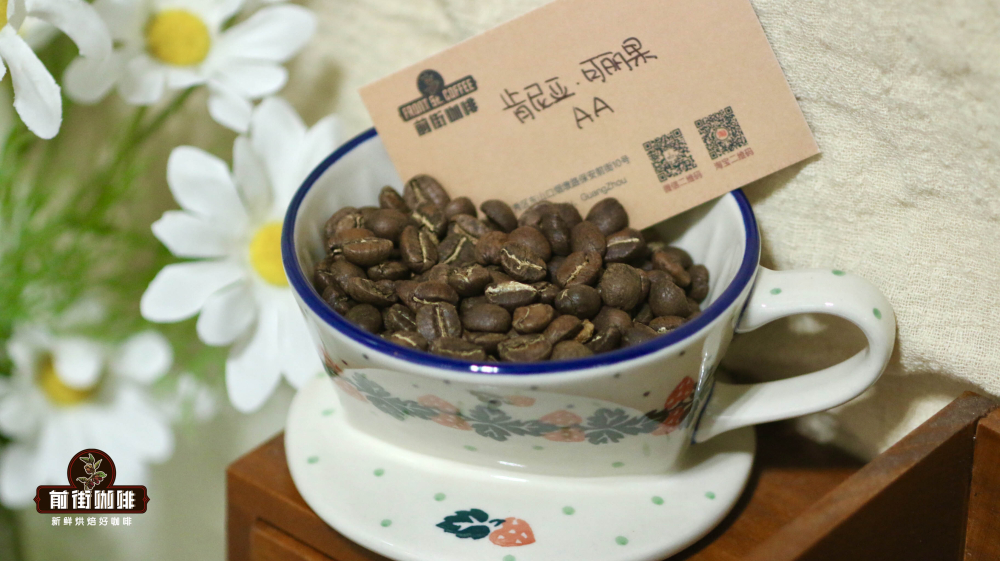
MERU (Meru)
Most of the coffee in this area is grown by small farmers in the foothills of Kenya and in the Nyambene hills. The name refers to the magnetic field area and the Meru people who live there. They were the first Kenyans to start producing coffee in the 1930s because of the importance of guaranteeing the rights of people of African descent in Kenya in the White Paper (devonshire white paper) signed in 1923.
Altitude: 1300 to 1950 m
Harvest period: October to December (main production season), June to August (by-product season)
Varieties: SL-28, SL-34, ruiru11, Batian, K7
KIAMBU (Giambo)
This producing area in central Kenya has the highest coffee growing area in the region. However, some coffee trees at high altitudes can get Dieback and stop growing. This producing area is named after the town of Nakuru. Coffee is grown here in the form of both manors and small farmers, but the yield is relatively small.
Altitude: 1850-2200 m
Harvest period: October to December (main production season), June to August (by-product season)
Varieties: SL-28, SL-34, Ruiru11, Batian
KISII (Kisi)
This area is located in southwestern Kenya, not far from Lake Victoria, is a relatively small producing area, most coffee beans come from free small producers of common cooperatives.
Altitude: 1450 to 1800 m
Harvest period: October to December (main production season), June to August (by-product season)
Varieties: SL-28, SL-34, Lanshan, K7
TRANS-NZOIA, KEIYO&MARAKWET (Terrance-Enzoya & Maraquette)
This small producing area in western Kenya has begun to develop in recent years. Mount Elgonne provides a certain altitude, and most of the coffee comes from the manor. Coffee is usually grown to diversify previously exclusive cornfields or dairy farms.
Altitude: 1500 to 1900 m
Harvest period: October to December (main production season), June to August (by-product season)
Varieties: ruiru11, batian, SL-28, SL-34.

Kenyan coffee bean varieties
In Kenya, the common varieties are SL28, SL34, French missionary Bourbon and Ruilu 11. These two varieties have particularly attracted the attention of the boutique coffee industry: SL-28 and SL-34. This is Guy from Scott Lab (Scott Laboratories). The research project led by Guy Gibson produced two of the 40 experimental varieties, but these varieties are susceptible to leaf rust. The bourbon variants (SL-28) and (SL-34) have always been the winners of the expert cup test Narobi auction. The Kenyan raspberry flavor comes from these two beans-- especially (SL-28)-- is the consensus of experts. But although his flavor is good, his production capacity and disease resistance is not good.
Kenya spares no effort in developing varieties that are resistant to leaf rust. Ruiru11 is the first variety to be approved successfully by the Kenyan Coffee Council, even though boutique coffee buyers are lukewarm about the variety. In recent years, the Coffee Committee has launched another variety called Batian. The quality seems to have improved, and people are optimistic about its future cup performance.
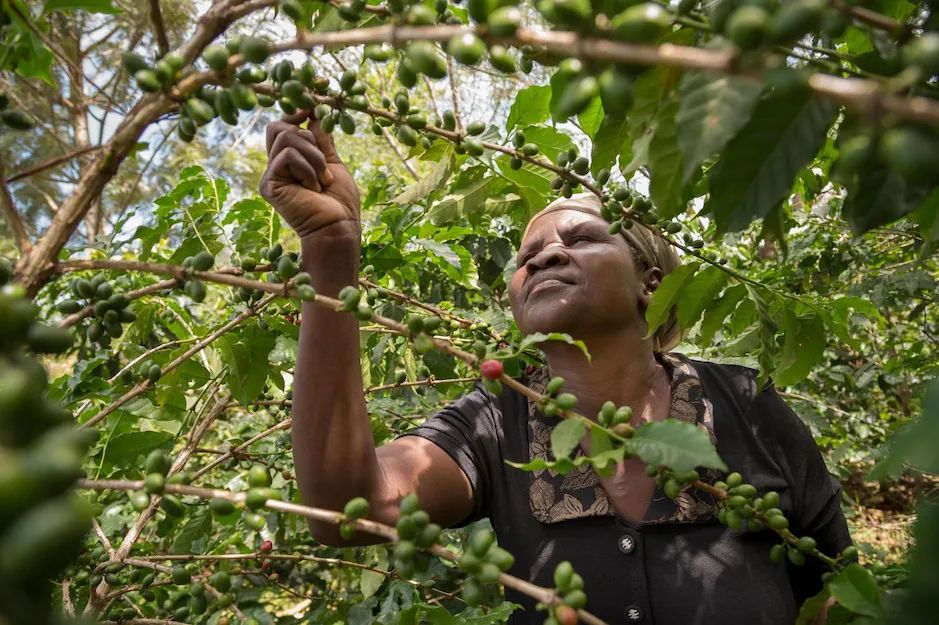
Grading of Kenyan coffee beans
Kenya coffee beans are strictly graded, mainly according to the size, shape and hardness of coffee beans, from high to low divided into AA or AA+, AB, PB, C, E, TT, T, selection can be used as a basis, but also based on the flavor of coffee.
Coffee size classification
AA grade with excellent quality (flavor, taste) in AA Plus (AA+) cup
AA particle size (Screen Size) 17 Murray 18 size
AB particle size (Screen Size) 15 Murray 16 size, accounting for the majority of production
C particle size (Screen Size) is smaller than that of AB.
TT blows lighter beans from AA and AB beans with an airflow filter.
T from C-grade beans, lighter beans blown by an airflow filter.
E Elephant Bean is a large mutant bean, also known as Elephant ear.
UG does not meet the above criteria
PB Peaberry, classified by appearance, independent of flavor weight
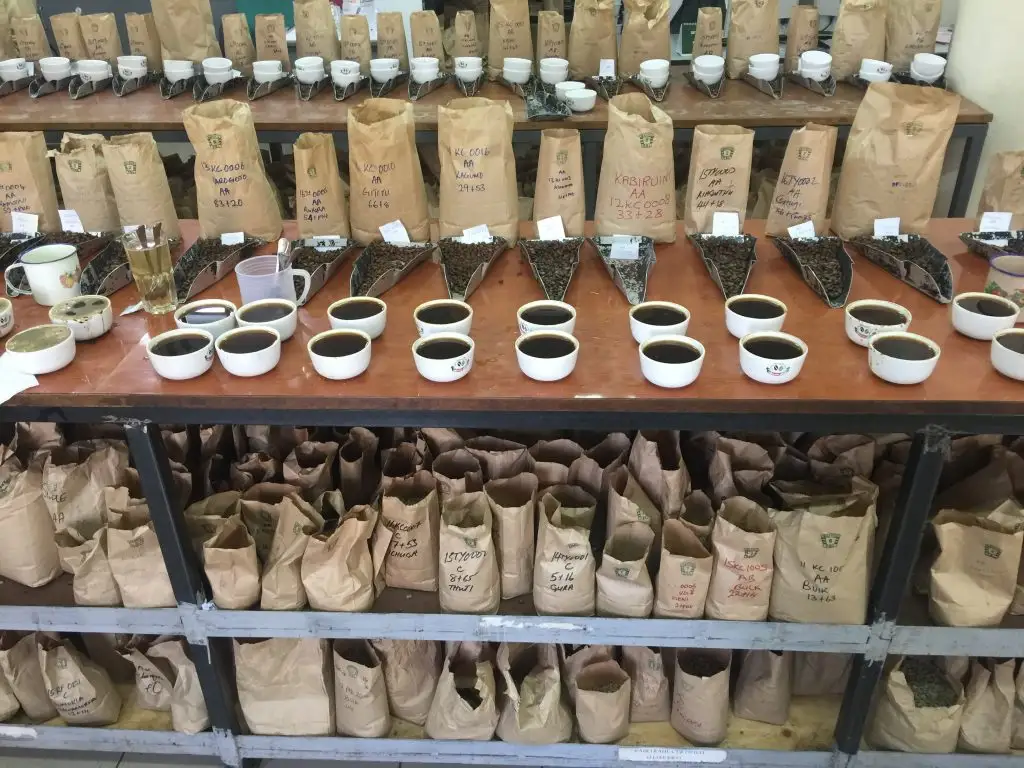
Kenyan coffee bean flavor
The flavor of Kenyan beans-sour clean and beautiful! The flavor comes from the beautiful and rich acid. If high-quality acid is the soul of good coffee, Kenya beans is the best representative of the soul!
Kenya's acidity is bright, gorgeous, full and excellent, so that people who have drunk it are hard to forget. The exquisite flavor of Kenyan beans covers almost 29 flavors in the Fine Coffee Association Flavor Wheel (SCA Flavor wheel). The sour flavors include blackcurrant, familiar plum, lime, grapefruit or pineapple, green apple, passion fruit and cranberry fruit, while honey, black sugar and sweet fresh orange juice are sweet.
The body imported from Kenya is the only one in the world-because most bright sour coffees are less likely to have a thick touch or fat at the same time, but Kenya beans have a thick greasy or mouth-covered feel, which is why local quality controllers rate them on the basis of acidity (acidity) / body (texture) / flavor (flavor) when selecting top batches, and select batches that can be auctioned at a high price.
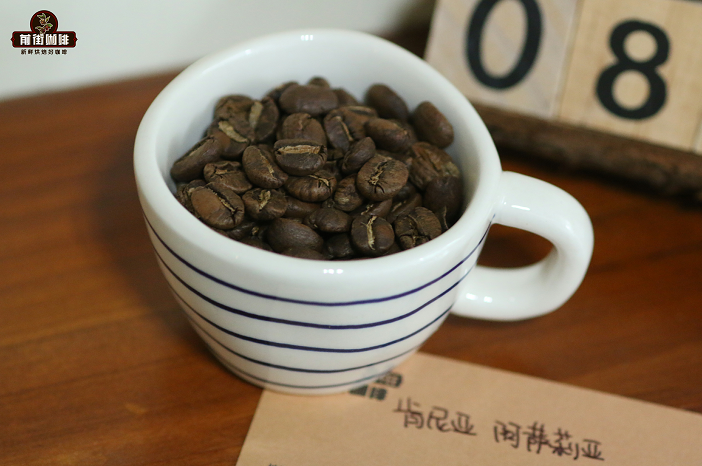
Knowing the flavor information of Kenyan coffee beans, Qianjie Coffee can take you to make a brewing plan according to the characteristics of the beans. Kenny's high altitude, volcanic soil, good varieties, refined treatment, resulting in full beans, large beans, hard beans, beans look good. The problem that often occurs among punters is the phenomenon of water blockage.
Therefore, in the grinding, Qianjie does not recommend too much fine powder, you can choose a better quality bean grinder, or use a powder sieve to scare off the fine powder, and the thickness is 75% of the pass rate of the 20th standard division.
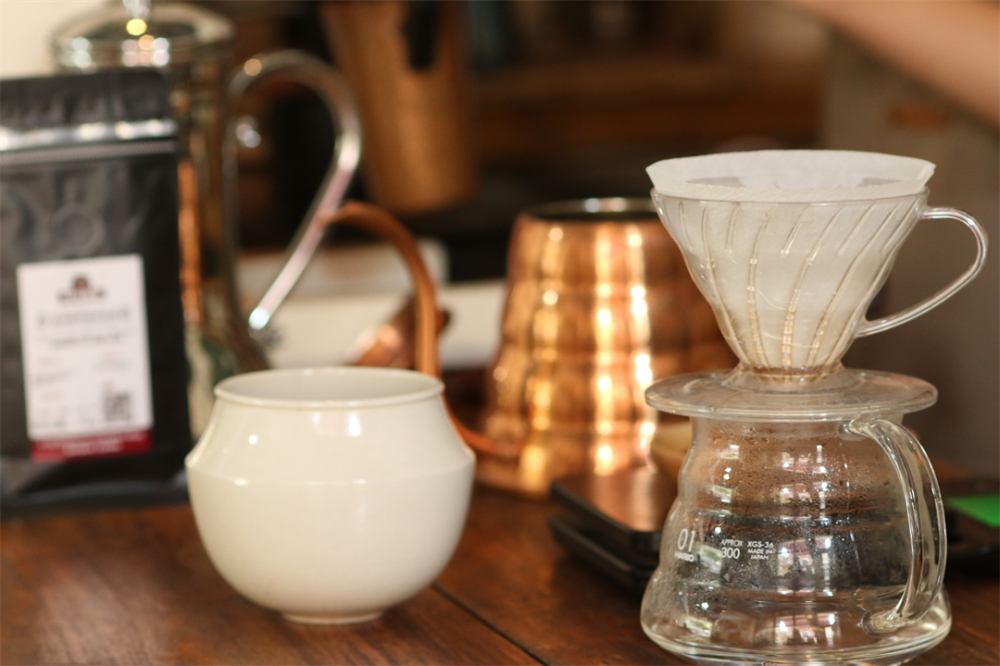
Qianjie coffee is mainly recommended as a standard sieve, with a screening rate of 80% for medium-shallow baking and 75% for medium-deep baking. The reason is that the installation of each grinder makes it in a different state of maintenance, and even if it is scaled, the powder may not look good. Therefore, it is more accurate to take the standard screen as the standard, or to correct the grinder and then determine the degree of grinding.
In terms of water temperature, this Kenyan coffee is suitable for brewing at a higher temperature, which can make the coffee's fruit feel sweet (baby tomatoes). A water temperature of 93 degrees is recommended in front street.
Powdered water than Qianjie is recommended to use 1:16, Kenya this coffee itself solid taste, even if brewed to 16 times the ratio of powder to water does not reduce, and 1:16 flushed out of the concentration is very soft, bright Umei acid with sweet and sour aroma of baby tomato, very comfortable.
The front street uses a small V60 filter cup, it is recommended to use at least 15 grams of coffee powder, if you use a large V60 filter cup, it is recommended to use at least 25 grams of coffee powder.

During water injection, the powder layer can be raised and less water can be injected around a large circle, so that the thickness of the powder layer can be thinned and fully extracted to avoid blockage of the (edge) channel and (bottom).
First, the water of 30ml is injected into steam for 30 seconds, and the water of 120ml is injected into the second stage, and the water is injected in a circle from the center to the outside until the surface is covered with golden foam, and then the circle shrinks to the central point, and the height of the powder layer is up to 1 inch 2 of the short ribs. The third section is filled with water from 90ml and filled with water in a circle the size of a coin. After the coffee liquid is dripped into the sharing pot, finish the extraction for 2 minutes (error of 10 seconds). This brewing method not only highlights the aroma and sweetness of Kenyan coffee tomatoes, but also ensures the solid and transparent acidity of black plum.
Professional coffee knowledge exchange more coffee bean information please follow the coffee workshop (Wechat official account cafe_style)
For more boutique coffee beans, please add private Qianjie coffee on Wechat. WeChat account: qjcoffeex
Important Notice :
前街咖啡 FrontStreet Coffee has moved to new addredd:
FrontStreet Coffee Address: 315,Donghua East Road,GuangZhou
Tel:020 38364473
- Prev
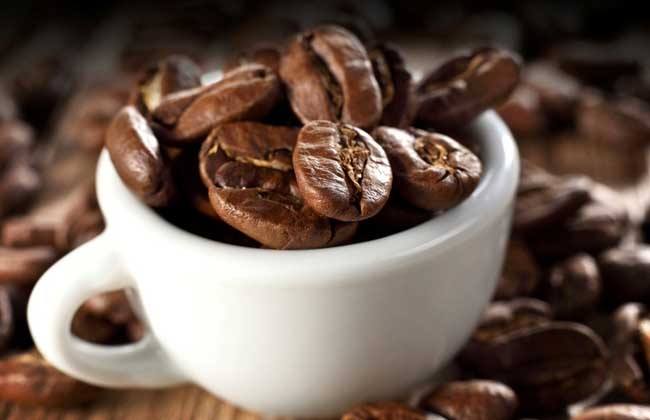
History and characteristics of Kenyan coffee beans
Following Cafe Review (Wechat official account vdailycom) found that Fairview Cafe opened a small shop of its own Kenya Coffee Bean History Africa is the third largest coffee production continent in the world, after Central and South America and Asia. African fine beans are mainly in Ethiopia, Kenya and Yemen, but the development of coffee industry in Kenya is relatively late. It was not until the beginning of the 20th century that he began to engage in it.
- Next
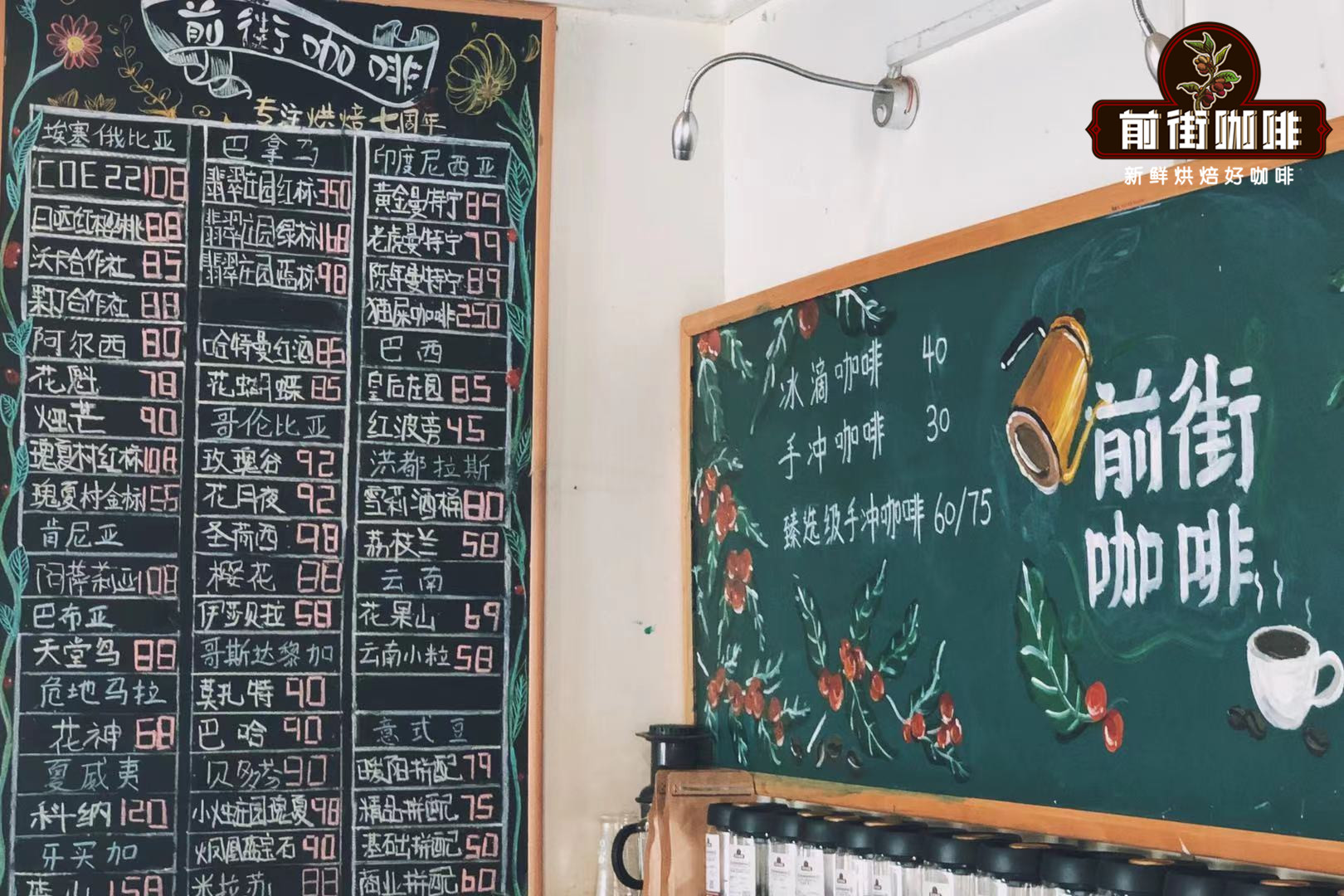
Kenya AA Coffee Variety Features Kenya coffee beans Hand brewed Flavor Taste Description
Pay attention to coffee reviews (Weixin Official Accounts vdailycom) and find a good coffee shop. Coffee industry insiders all think Kenyan coffee is one of their favorite products, because Kenyan coffee contains every feeling we want from a good cup of coffee. It has wonderful,
Related
- Detailed explanation of Jadeite planting Land in Panamanian Jadeite Manor introduction to the grading system of Jadeite competitive bidding, Red bid, Green bid and Rose Summer
- Story of Coffee planting in Brenka region of Costa Rica Stonehenge Manor anaerobic heavy honey treatment of flavor mouth
- What's on the barrel of Blue Mountain Coffee beans?
- Can American coffee also pull flowers? How to use hot American style to pull out a good-looking pattern?
- Can you make a cold extract with coffee beans? What is the right proportion for cold-extracted coffee formula?
- Indonesian PWN Gold Mandrine Coffee Origin Features Flavor How to Chong? Mandolin coffee is American.
- A brief introduction to the flavor characteristics of Brazilian yellow bourbon coffee beans
- What is the effect of different water quality on the flavor of cold-extracted coffee? What kind of water is best for brewing coffee?
- Why do you think of Rose Summer whenever you mention Panamanian coffee?
- Introduction to the characteristics of authentic blue mountain coffee bean producing areas? What is the CIB Coffee Authority in Jamaica?

